The Staff Selection Commission has released the SSC MTS Notification 2025 for MTS and Havaldar post. It is important to plan a SSC MTS Preparation Strategy 2025 as the SSC MTS (Multi-Tasking Staff) and Havaldar exam is one of the most sought-after competitive exams in India. However, the competition is massive with thousands of aspirants and a limited number of positions. The SSC MTS exam tests candidates’ knowledge and skills across various subjects, including General English, General Intelligence & Reasoning, Numerical Aptitude, and General Awareness.
The candidates will have to attempt 90 questions in paper 1 which is divided into 2 sessions and four sections. To prepare for an examination strategically, the candidates need to go through the SSC MTS Preparation Tips for all the subjects.
SSC MTS Preparation Strategy 2025
The guide below provides a simple, user-friendly approach to help you prepare effectively for the SSC MTS 2025 Exam. With the right strategy and tips, you can boost your confidence, enhance your performance, and increase your chances of success. The candidates who are preparing to appear in the next examination cycle, can start their preparation with this strategy and guide to excel in the examination.
- Understand the Exam: This will help the candidates to identify key topics and question types, enabling them to tailor their preparation effectively.
- Make a Proper and Streamlined Study Plan: Create a detailed study plan that outlines daily and weekly goals based on the syllabus. This plan should allocate specific time slots for each subject, ensuring a balanced approach.
- Finalize Resources: Choose reliable study materials and resources, such as textbooks, online courses, and practice papers, that cover the entire syllabus comprehensively.
- Take Mock Tests: Regularly take mock tests to simulate the exam environment. This practice will help you manage your time effectively during the actual exam and familiarize you with the test format.
- Analyze Your Performance: After each mock test, review your answers to understand where you went wrong. This analysis will help you identify recurring mistakes and knowledge gaps.
Knowing the SSC MTS Exam Pattern
One of the most effective SSC MTS 2025 Preparation Tips is to understand the exam pattern. The SSC MTS exam consists of two stages- Paper 1, which is an objective test, and Physical Efficiency Test & Physical Standard Test (only for Havaldar).
Paper-I: Objective Type
- Sections: General English, General Intelligence & Reasoning, Numerical Aptitude, and General Awareness
- Duration: 90 minutes
- Total Marks: 270
- Negative Marking: In Session 1, for every wrong answer 1 mark.
| Subject | No. Of Questions | Marks | Duration |
| Session 1 | |||
| Numerical and Mathematical Ability | 20 | 60 | 45 minutes |
| Reasoning Ability and Problem-Solving | 20 | 60 | |
| Total | 40 | 120 | |
| Session 2 | |||
| General Awareness | 25 | 75 | 45 minutes |
| English Language and Comprehension | 25 | 75 | |
| Total | 50 | 150 | |
SSC MTS Syllabus 2025- Click to Check
SSC MTS Subject Wise Preparation Tips
As mentioned above, there are 4 subjects in the SSC MTS Exam- English, Reasoning, Quantitative Aptitude, and General Awareness. Candidates can check the subject-wise SSC MTS Preparation Tips below.
SSC MTS Preparation Tips for English
Check the syllabus and preparation tips for SSC MTS General English below.
- Focus on Grammar: Brush up on basic grammar rules, including tenses, prepositions, conjunctions, and articles.
- Vocabulary: Improve your vocabulary by reading newspapers, magazines, and books. Make a list of new words and revise them regularly.
- Practice Comprehension: Practice reading comprehension passages to improve your understanding and speed.
| SSC MTS English Syllabus |
| Spot the error Fill in the blanks Synonyms Antonyms Spelling/detecting mis-spelled words Idioms and Phrases One word substitution Improvement of sentences Comprehension Passage |
SSC MTS Preparation Tips for Reasoning
The syllabus and preparation strategy for General Intelligence and Reasoning is discussed below.
- Understand the Concepts: Familiarize yourself with topics like analogies, coding-decoding, series, and puzzles.
- Practice Regularly: Solve previous years’ question papers and take mock tests to improve your reasoning skills.
- Time Management: Work on your speed and accuracy to ensure you can complete the section within the allotted time.
| SSC MTS General Intelligence and Reasoning |
| Alpha-Numeric Series Coding and Decoding Analogy Following Directions Similarities and Differences Jumbling Problem Solving and Analysis Nonverbal Reasoning based on diagrams, Age Calculations, Calendars and Clocks, etc. |
SSC MTS Preparation Tips for Numerical Aptitude
Check the SSC MTS Preparation Strategy 2025 for Numerical/Quantitative Aptitude below.
- Basic Mathematics: Focus on basic arithmetic, algebra, geometry, and trigonometry.
- Practice Questions: Solve as many practice questions as possible to get a good grasp of different types of problems.
- Shortcut Methods: Learn and practice shortcut methods for quick calculations.
| SSC MTS Numerical Aptitude Syllabus |
| Integers and Whole Numbers, LCM and HCF Decimals and Fractions Relationship between numbers Fundamental Arithmetic Operations BODMAS Percentage Ratio and Proportions Work and Time Direct and inverse Proportions Averages Simple Interest Profit and Loss Discount Area and Perimeter of Basic Geometric Figures Distance and Time Lines and Angles Interpretation of simple Graphs and Data Square and Square roots etc. |
SSC MTS Preparation Tips for General Awareness
- Current Affairs: Stay updated with the latest news and events, especially those related to India.
- Static GK: Study important topics like history, geography, politics, and economics.
- Regular Revision: Make notes of important facts and figures and revise them regularly.
Create a Study Plan
A well-structured study plan is essential for effective preparation. Divide your study time equally among all subjects and stick to your schedule. Here is a sample study plan for your reference:
| Month | Week | General Intelligence & Reasoning | Numerical Aptitude | General English | General Awareness |
|---|---|---|---|---|---|
| Month 1 | Week 1 | Classification, Analogies | Number System, Simplification | Parts of Speech, Articles | History of India |
| Week 2 | Coding-Decoding, Series Completion | Percentage, Ratio & Proportion | Tenses, Subject-Verb Agreement | Indian Constitution | |
| Week 3 | Blood Relations, Direction Sense | Average, Profit & Loss | Prepositions, Conjunctions | Geography of India | |
| Week 4 | Syllogism, Venn Diagram | Simple Interest, Compound Interest | Nouns, Pronouns | Current Affairs | |
| Month 2 | Week 1 | Data Interpretation, Puzzles | Time & Work, Time & Distance | Adjectives, Adverbs | Economy of India |
| Week 2 | Logical Sequence of Words, Visual Memory | Algebra, Geometry | Verbs, Modals | Science & Technology | |
| Week 3 | Sitting Arrangement, Statement & Conclusion | Mensuration, Trigonometry | Voice, Narration | Indian Polity | |
| Week 4 | Analogy, Classification Revision | Percentage, Profit & Loss Revision | Error Spotting, Sentence Correction | Indian Culture | |
| Month 3 | Week 1 | Logical Venn Diagram, Direction Sense Revision | Time & Work, Time & Distance Revision | Synonyms, Antonyms | Books & Authors |
| Week 2 | Blood Relations, Syllogism Revision | Simple & Compound Interest Revision | Idioms & Phrases, One-word Substitution | Important Days | |
| Week 3 | Puzzle, Data Interpretation Revision | Algebra, Geometry Revision | Comprehension Practice | Sports & Awards | |
| Week 4 | Full-Length Practice Tests | Full-Length Practice Tests | Full-Length Practice Tests | Full-Length Practice Tests |
Use Quality Study Material
Choosing the best books and online resources is crucial for your preparation. Adda247 provides excellent study material, including comprehensive books and online courses. Some recommended materials are:
| Subject | Book Title | Author |
|---|---|---|
| General Intelligence & Reasoning | A Modern Approach to Verbal & Non-Verbal Reasoning | R.S. Aggarwal |
| SSC Reasoning (Verbal, Non-Verbal & Analytical) | Ajay Singh | |
| Analytical Reasoning | M.K. Pandey | |
| Numerical Aptitude | Quantitative Aptitude for Competitive Examinations | R.S. Aggarwal |
| Fast Track Objective Arithmetic | Rajesh Verma | |
| SSC Elementary and Advanced Mathematics | Kiran Prakashan | |
| General English | Objective General English | S.P. Bakshi |
| Wren & Martin High School English Grammar and Composition | P.C. Wren, H. Martin | |
| Word Power Made Easy | Norman Lewis | |
| General Awareness | Lucent’s General Knowledge | Dr. Binay Karna |
| Manorama Yearbook | Mammen Mathew | |
| Pratiyogita Darpan | Editorial Team |
Online Courses
Adda247’s online courses and video lectures are highly beneficial. Visit the SSC ADDA YouTube Channel for proper guidance and video lectures. Once you complete the syllabus, you can go forward with the additional resources to enhance your preparation.
Take Mock Tests
Regularly taking mock tests is vital to assess your preparation and identify areas for improvement. Adda247 offers high-quality SSC MTS Mock Test that simulate the actual exam environment. Make it a habit to take at least one mock test per week as you get closer to the exam date.
Analyze Your Performance
After each mock test, analyze your performance thoroughly. Identify your weak areas and work on them. Keep track of the mistakes you make and ensure you do not repeat them. This analysis will help you understand your strengths and weaknesses better.
Stay Consistent
Consistency is key to success. Study regularly and avoid long breaks in your preparation. Stick to your study plan and ensure you are covering all the topics systematically. Regular revision is also crucial to retaining what you have learned.

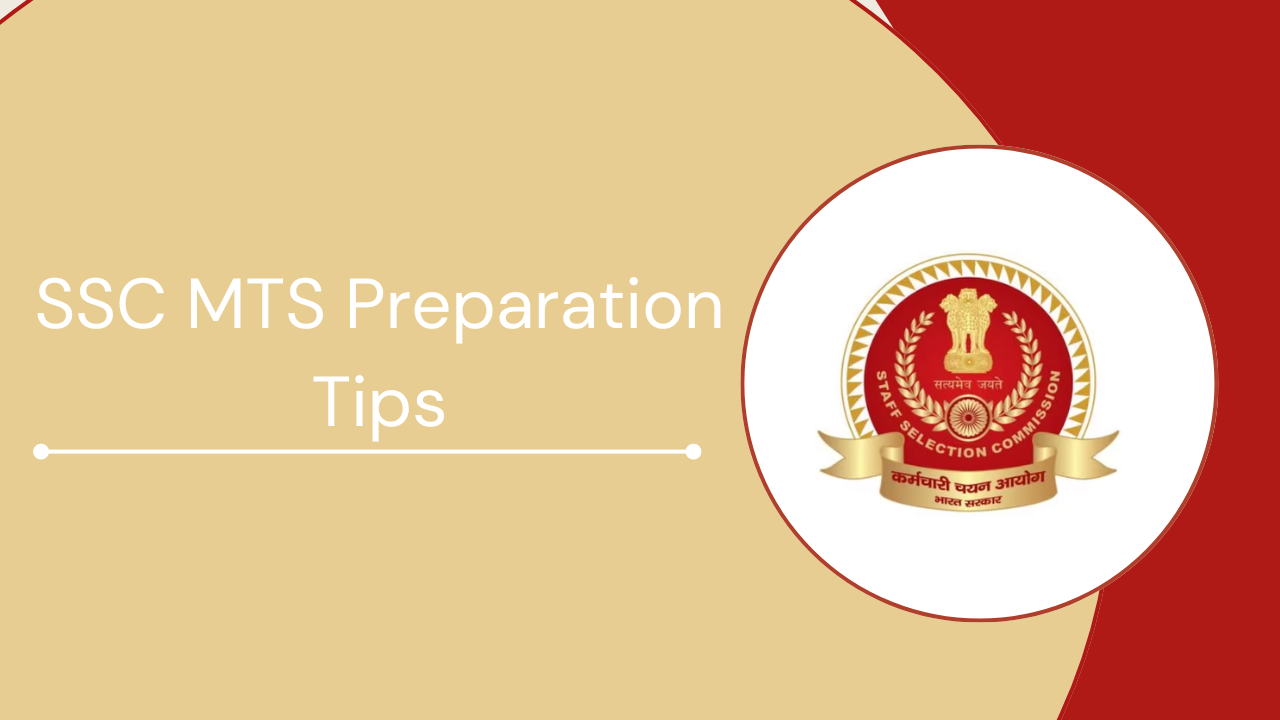
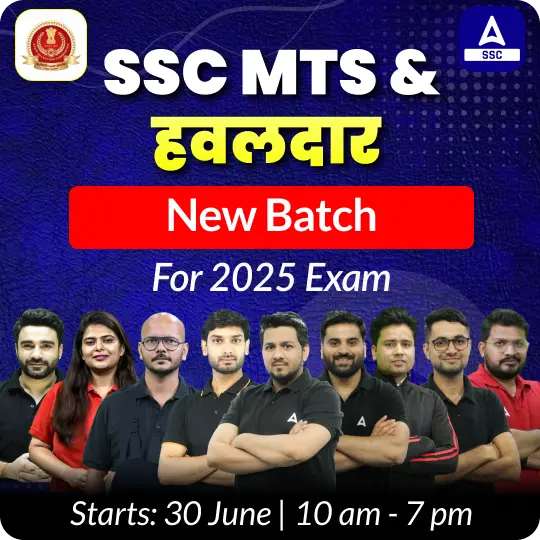

![Delhi Police Driver Answer Key 2025 [Official] Out, Last Date to Raise Objection](https://www.adda247.com/jobs/wp-content/uploads/sites/22/2025/12/31182449/Delhi-Police-Driver-Answer-Key-2025-Out-300x169.jpg) Delhi Police Driver Answer Key 2025 [Off...
Delhi Police Driver Answer Key 2025 [Off...
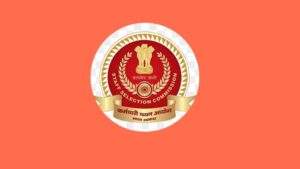 SSC JHT Score Card 2025 Out, Direct Link...
SSC JHT Score Card 2025 Out, Direct Link...
 Delhi Police Exam Cancelled on 18th Dece...
Delhi Police Exam Cancelled on 18th Dece...
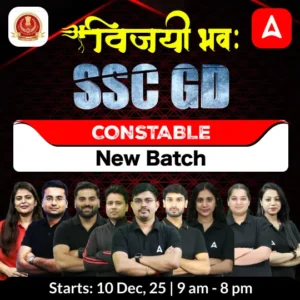
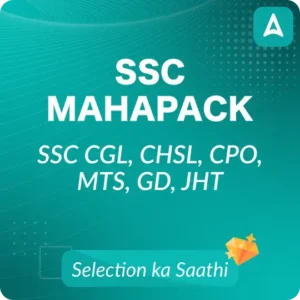
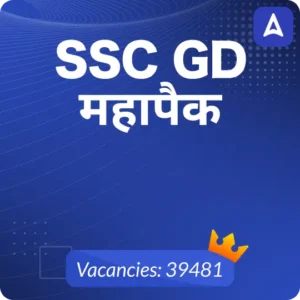
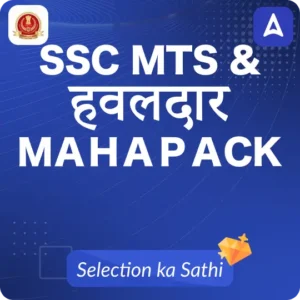
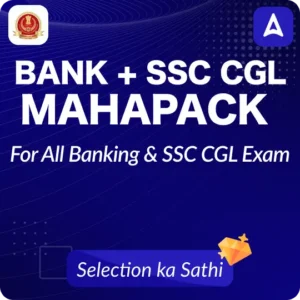
 Adda247 Job portal has complete information about all Sarkari Jobs and Naukri Alerts, its latest recruitment notifications, from all state and national level jobs and their updates.
Adda247 Job portal has complete information about all Sarkari Jobs and Naukri Alerts, its latest recruitment notifications, from all state and national level jobs and their updates.



